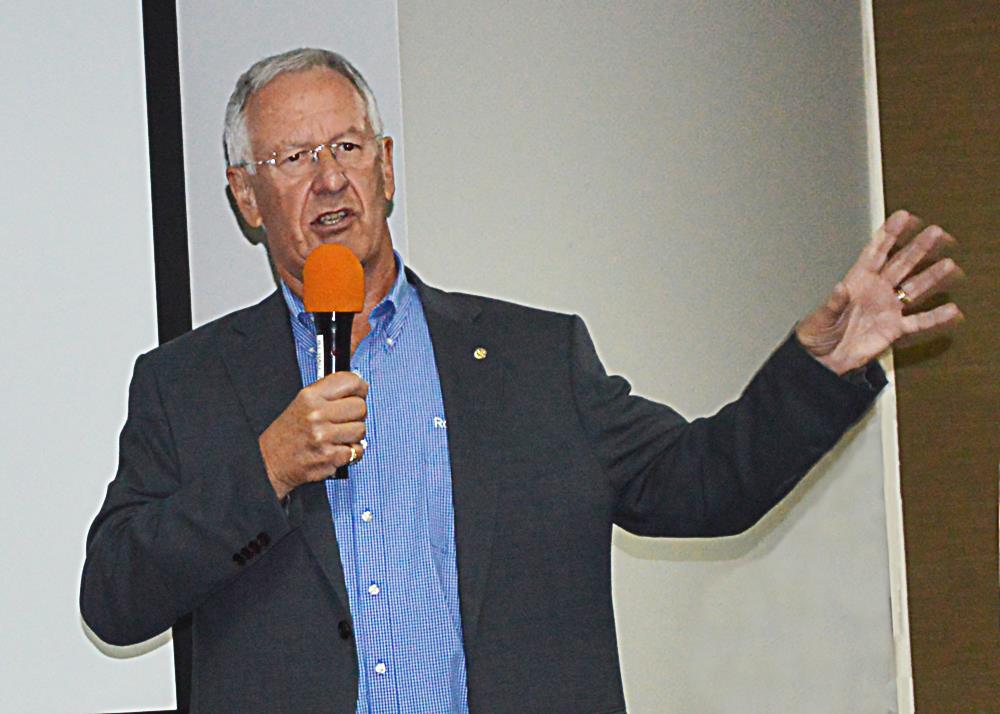| Past District Governor John Egan introduced our guest speaker RI Director Noel Trevaskis. He gave a brief history of Noel’s participation in Rotary. Noel has an OAM and has worked in Mental Health. |
 |
Noel began his speech by thanking Wollundry for asking him to speak. Noel said Wollundry is well known for not having any women members and he said, “so what”. There are "all women" and "all men" and "mixed" clubs … it is important that it is the club’s decision and what is important is the service that is done. Noel complimented Wollundry for their work they do in the community. Noel said his wife is good friends with Sarah Brown of the Purple House who was a guest speaker at the recent Rotary District Conference . Noel and his wife will be working with Sarah in July and August to raise money for an aged care centre in Northern Territory. Noel noted that the Rotary Foundation is responsible for the good works that are being done... but that is not exactly correct. It is not the Foundation … it is the Rotarians that support and do the work. The Foundation would be nothing without the Rotarians. He also noted that it was the first time that there was an Australian RI board member and an Australian RI President at the same time. He said that there are challenges ahead for Rotary. The average age of Rotarians is 71. The average age in the UK is 74. In America and Europe the membership numbers are declining. Yet in Asia and Africa the Rotary Clubs are experiencing incredible growth. He thinks Rotary will experience a loss of membership until 2032 and then level off. He thinks the millennials will be the generation that will take up the cause of doing good in the world, only with specific objectives in mind, like poverty, homelessness. They are not interested in coming along to a weekly meeting. He believes the number of clubs in cities should be reduced with larger number of members per club. He said that Rotary brings in new members, but we don’t look after them … we lose them. He said that a survey showed that people join for two reasons: to do community service and make new friends. And the reason they leave is same two reasons. They find they are doing more fund raising instead of community service and the established table groupings in the club made it hard to build friendship. |
 |
He told a story about a young couple that were actively involved with youth programs but had problems with attendance. The board sent them a letter drawing attention to their attendance and they both quit. He said Attendance should not be the issue, rather it is whether they are engaged and involved with the club, and above all having fun. He told us about his own challenges with mental health and how he was not really involved with Rotary and his wife told him he had to be "in or out". He got "in" to Australian Rotary health and the rest is history. He told us that if we wanted to get people to join Rotary we had to tell them our own personal story and not the statistics of how many Rotarians there are in the world. If we tell our story with passion and sincerity, people will want to be a part of Rotary. |